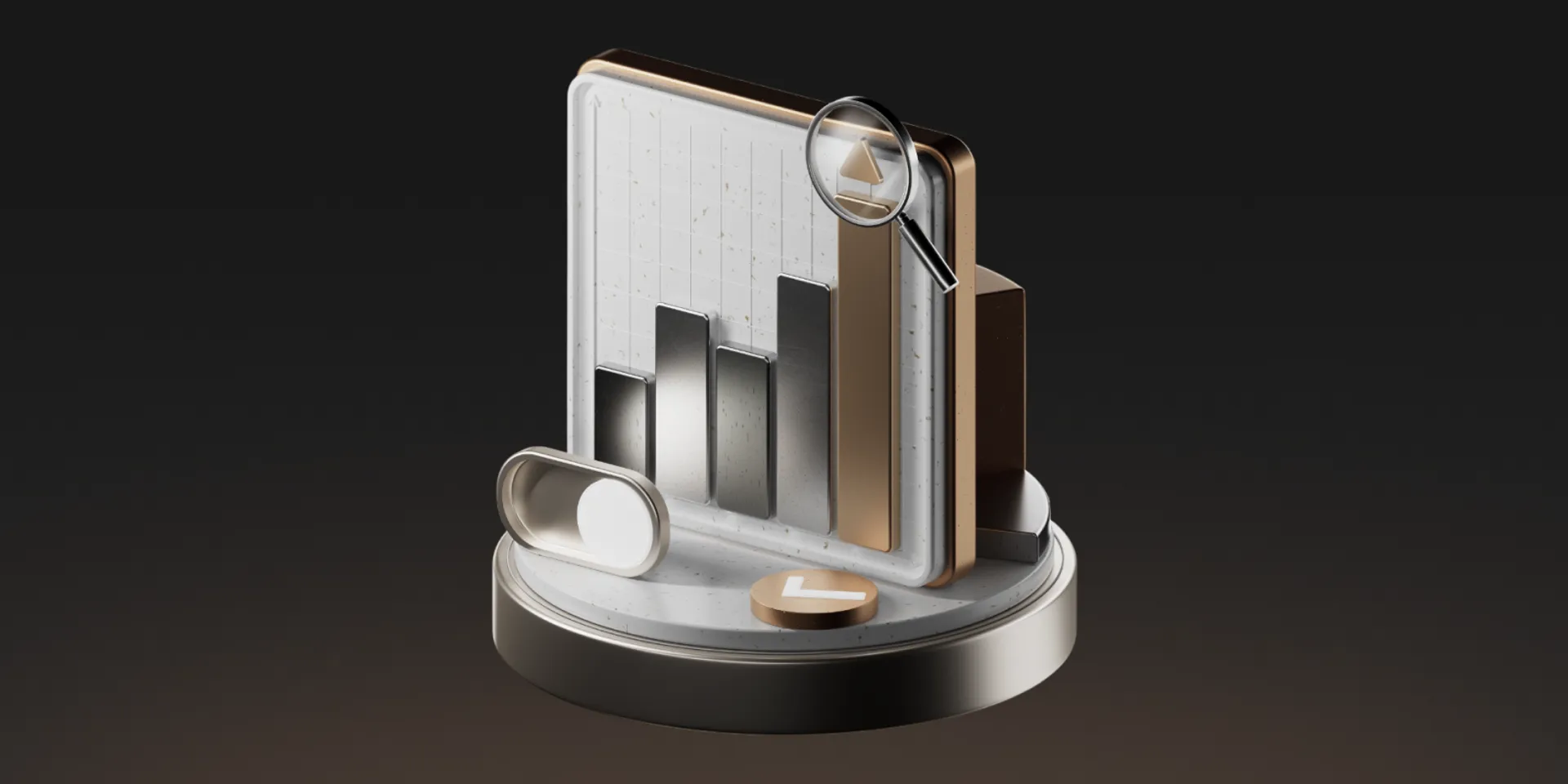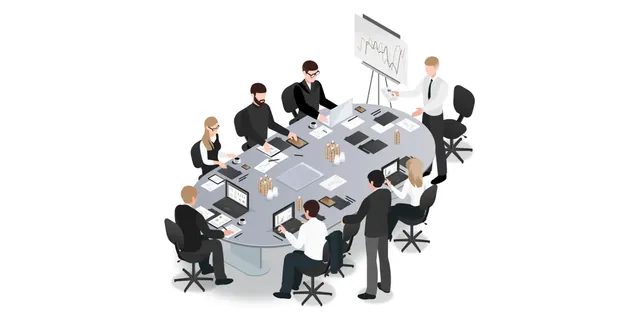What is a commodity?

Commodities are the raw materials used by industries to manufacture final products. They form the cornerstone of the global economy, influencing business activity and everyday life. Given their high liquidity and diversification benefits, commodities have become popular among traders. It’s important for new traders to understand what commodities are and how they’re classified. We’ll also explore how to trade commodities.
Key takeaways
-
Commodities are raw materials extracted or grown, such as crude oil, gold, wheat, and coffee, forming the cornerstone of the global economy and essential for producing almost everything consumed daily.
-
Commodities are classified into soft commodities, which are renewable agricultural products like coffee and corn affected by weather, and hard commodities, which are non-renewable mined resources like gold and oil.
-
Commodities trade on specialized exchanges through standardized contracts, with traders typically using derivatives like contracts for difference (CFDs) to gain exposure to price movements without owning physical assets.
-
Trading commodities offers benefits including hedging against price fluctuations, mitigating inflation impact, portfolio diversification, high liquidity in popular commodities, and opportunities arising from sensitivity to geopolitical and economic events.
Understanding commodities
Unlike stocks and bonds, commodities trading involves tangible assets. Traders typically use derivatives, like contracts for difference (CFDs), to gain exposure to commodity price movements without owning the physical asset. Capital.com offers a wide variety of commodities for CFD trading on an award-winning platform.
Classification of commodities
Commodities are broadly categorised into two main types:
-
Soft commodities: these are typically agricultural products that are grown rather than extracted. They are often renewable, but their supply can be heavily influenced by weather patterns, seasonality, and environmental factors. Commonly traded soft commodities include coffee and corn.
-
Hard commodities: these are natural resources that must be mined or extracted from the earth. Typically non-renewable, their supply is finite. Their geological availability is not within a country's control, and extraction costs are associated with their use. Gold trading and oil trading are the most popular, while silver, natural gas, and copper follow closely behind.
In addition to these two, other commodity categories include:
How commodities are traded
Commodities are primarily traded on specialised exchanges around the world. These markets provide a standardised platform for buyers and sellers to interact, ensuring price transparency, efficient trading and proper risk management.
Commodity exchanges
Some of the main exchanges that facilitate the trading of various commodities are the New York Mercantile Exchange (NYMEX), London Metal Exchange (LME), and Chicago Board of Trade (CBOT).
Standardisation and commodity codes
To ensure fair trading, commodities are highly standardised. This means that a specific quantity and quality of a commodity will be the same regardless of who is buying or selling it. For instance, every barrel of West Texas Intermediate (WTI) crude oil and every ounce of gold traded will be the same. Commodity codes are numerical codes used to identify these standardised contracts.
Commodity indices
A commodities index tracks the performance of a basket of commodities, offering insights into overall market trends. These indices serve as benchmarks and are useful for traders looking to understand general market movements.
The Bloomberg Commodity Index is among the most popular. It represents 22 commodities that are weighted according to their economic significance and market liquidity. The S&P GSCI comprises 24 exchange-traded futures contracts that are weighted according to the global production levels of the commodities. The CRB Commodity Index covers 19 commodities, with most of the contracts being focused on energy and agricultural produce.
Ways to trade commodities with Capital.com
Capital.com makes commodity trading more accessible for retail traders. It offers a powerful, easy-to-use platform for engaging with the commodities market through CFD trading. This allows you to speculate on price movements without owning or storing the physical commodity. With CFDs, you can also find trading opportunities in both rising and falling markets.
CFD trading with Capital.com
Capital.com offers a wide variety of commodities for CFD trading. You can trade spot CFDs, which do not have a specified expiry date. This gives you control over when to close your position.
Here are the benefits of trading on Capital.com’s platform:
Wide variety of commodities: you can access a diverse range of popular commodities, including oil, gold, coffee, natural gas, and wheat. This allows you to easily diversify your trading portfolio.
Easy to sort: the variety of assets doesn’t overwhelm you because there are filters to sort them. You can filter the most traded or most volatile assets as well as the top risers and top fallers.
Real-time analysis tools: Capital.com offers you an award-winning platform with a suite of analytical tools, customisable charts, and intuitive indicators to help you make more informed trading decisions.
Demo account: you can quickly open a demo account and practice trading strategies with virtual funds. With this account, you can trade in a real-time market environment, without risking your capital. You can also use the CFD calculator, which calculates your CFD profit or loss on a hypothetical basis, based on historic pricing.
Open a demo account with Capital.com and experience these benefits.
Why trade commodities?
Traders are drawn to the commodities market for several reasons:
Hedging: businesses that have exposure to commodity price fluctuations, like airlines needing fuel, jewellers requiring gold and silver, and farmers selling crops, can use CFDs to hedge against adverse price movements. Traders also hedge their stock portfolio with commodity CFDs.
Mitigate the impact of inflation: inflation negatively impacts the stock market and erodes the value of the domestic currency. This adverse impact can be lessened with commodity trading, as the price of commodities tends to rise with inflation.
Speculation: the commodity market can offer wide price fluctuations, giving traders ample opportunities for speculating.
Liquidity: the most popular commodities are highly liquid, which means faster execution and lowest slippage.
Diversification: adding commodities to a portfolio can help reduce overall risk, as commodity prices often behave differently than traditional assets like stocks and bonds.
Connection to geopolitical and economic events: commodity prices are highly sensitive to global events. Geopolitical tensions, changes in supply and demand, economic data releases, and even weather events can have an impact on commodity prices. This interconnectedness provides unique trading opportunities for those who stay abreast of the news and know how to react to these developments.
Create an account with Capital.com and explore commodity trading with CFDs.
FAQs about commodities
What are soft and hard commodities?
Soft commodities are agricultural products that are grown, such as coffee, cocoa, and wheat. Hard commodities are natural resources that are mined or extracted, including gold, oil, and natural gas.
How can I start trading commodities?
To begin trading commodities, open an account or a demo account with Capital.com. Once set up, you can explore available commodities, use analysis tools and open CFD orders to speculate on price movements.
What is a commodities index?
A commodities index tracks the performance of a basket of commodities, offering insights into market trends. One example is the Bloomberg Commodity Index.
What are the risks of trading commodities?
Trading commodities can be risky when there is high price volatility. This volatility can be triggered by various factors, like economic shifts, supply chain disruptions, and geopolitical tensions. It’s essential to understand these risks and use tools like stop-losses.
Visit related finance terms

What is hedge
